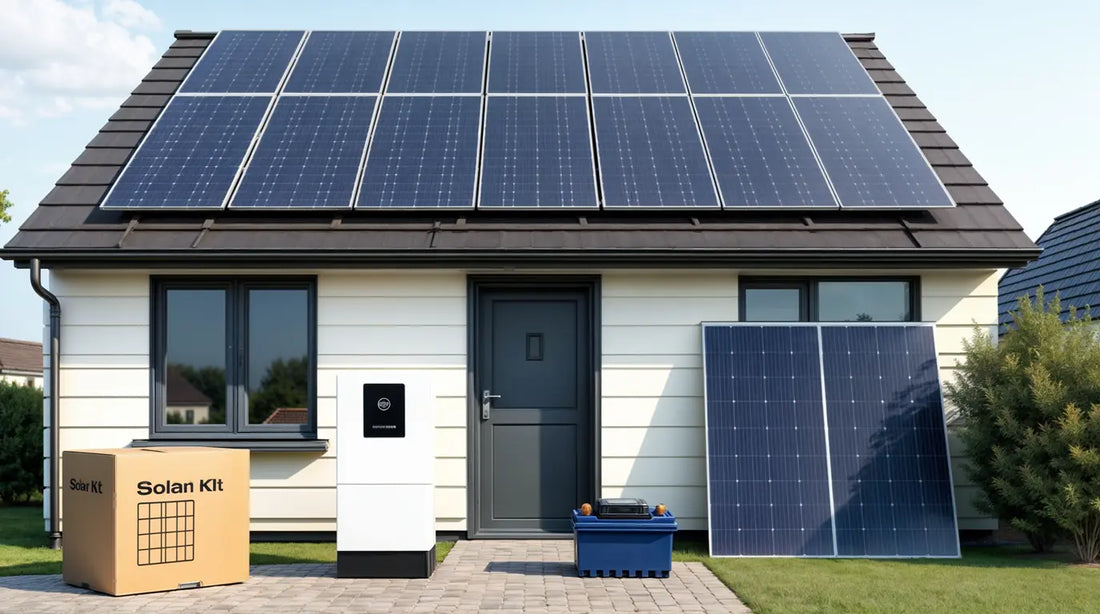Why this matters right now
South Africa’s solar industry is booming. Every week, more people are moving away from full Eskom reliance and taking control of their power. But here’s the catch — high demand has also brought a flood of “installers” who have no business touching a solar system.
If you want your investment to work as promised, last for years, and keep your warranty and insurance intact, you must use a certified solar installer.
This guide will walk you through why certification matters, how to check credentials, what paperwork you should get, and how to avoid costly mistakes.
1. Why using a certified solar installer isn’t optional
-
Your investment is on the line
Solar isn’t a R500 kettle you can replace if it breaks. It’s a long-term investment worth thousands, and if it’s installed incorrectly, you’ll pay for it twice — once for the gear, and again to fix the mess. -
It’s the law
In South Africa, any electrical work — including solar — must comply with SANS 10142 wiring code. That means only registered professionals can do the work, and you need a valid Certificate of Compliance (COC) when it’s done. -
Warranties and insurance depend on it
Most inverter and battery warranties state: “Must be installed by a qualified, registered installer with proof of compliance.” Skip this and you’ve just given the manufacturer and your insurer a reason to reject your claim.
Read our returns and warranty policy
2. The risks of going with a “backyard” installer
-
Safety hazards – Bad wiring can cause fires, shocks, or damage to your home’s electrical system.
-
Poor performance – Wrong setup can mean your system never produces or stores power properly.
-
Warranty void – One wrong connection and the manufacturer can legally refuse to fix or replace your equipment.
-
Insurance claim denial – If a fault causes damage, insurers will ask for your COC before paying out. No COC? No claim.
-
Fines or removal – Municipal inspectors can demand changes or even remove unsafe systems.
3. How to check if your installer is legit
Before you sign anything, make sure they have:
-
Department of Labour registration as an electrical contractor.
-
A Wireman’s License or Master Electrician Certificate.
-
A PV GreenCard – the industry’s stamp of approval for solar pros.
-
Membership with SAPVIA (South African Photovoltaic Industry Association).
-
Copies of recent COCs from past jobs.
If they dodge these questions or can’t show proof — walk away.
4. What a proper installation process looks like
-
Site inspection and load assessment before quoting.
-
Correct sizing of inverters, batteries, and panels.
-
Use of SANS-approved components.
-
Surge protection, proper earthing, and safe wiring.
-
Clean, organised cabling (if it looks like spaghetti, it’s a red flag).
5. Paperwork you must get when the job’s done
-
COC (Certificate of Compliance) – This is non-negotiable.
-
All manufacturer warranty documents.
-
A diagram or photos showing how the system is wired.
-
Maintenance guidelines so you know how to care for the system.
6. Tips for choosing the right certified installer
-
Get at least two to three quotes from certified installers.
-
Make sure each quote explains the equipment, specs, and installation details.
-
Ask for references and recent jobs you can look at.
-
Check if they offer after-sales support and call-outs.
Bottom line
A proper solar installation isn’t just about getting panels on your roof — it’s about getting the job done safely, legally, and in a way that protects your investment for years to come.
At Solar Step, we only work with certified, trusted installers who meet all the legal and industry requirements. It’s the only way to make sure your solar system performs like it should, and that your warranties and insurance stand when you need them.
If you want to connect with a certified installer in your area, contact us and we’ll point you in the right direction.

